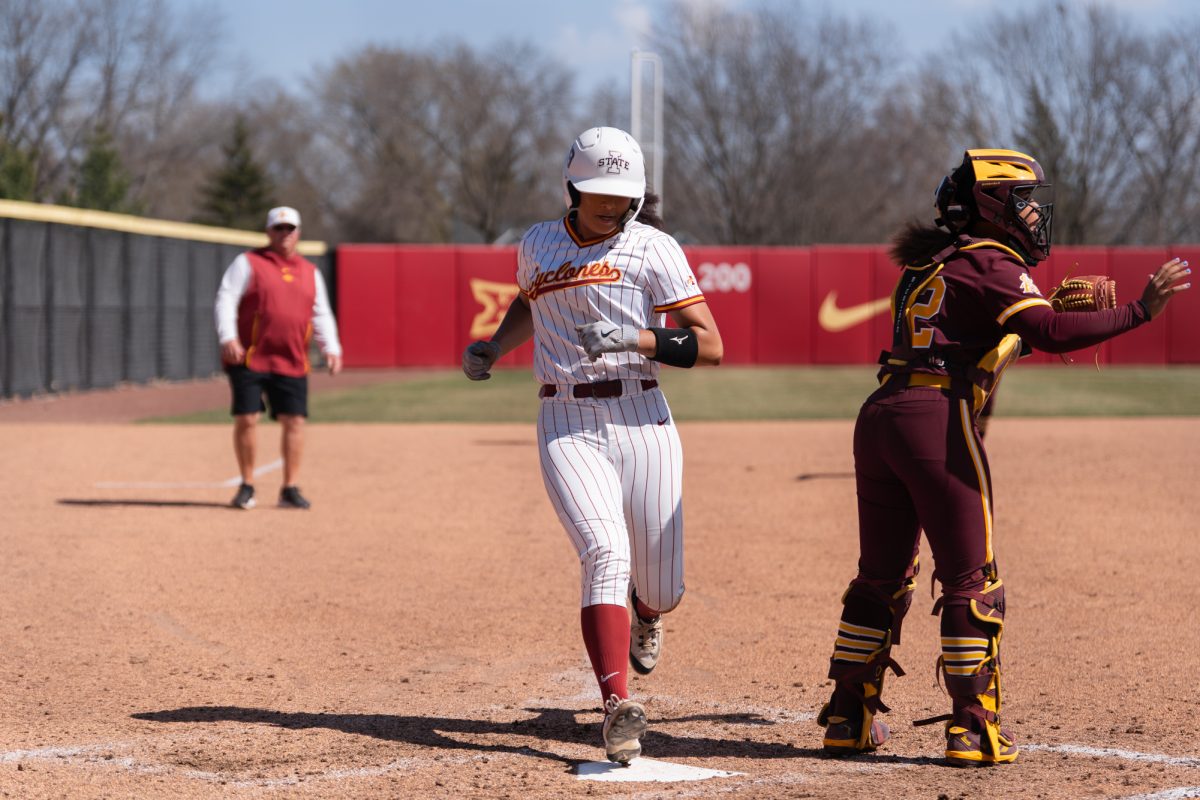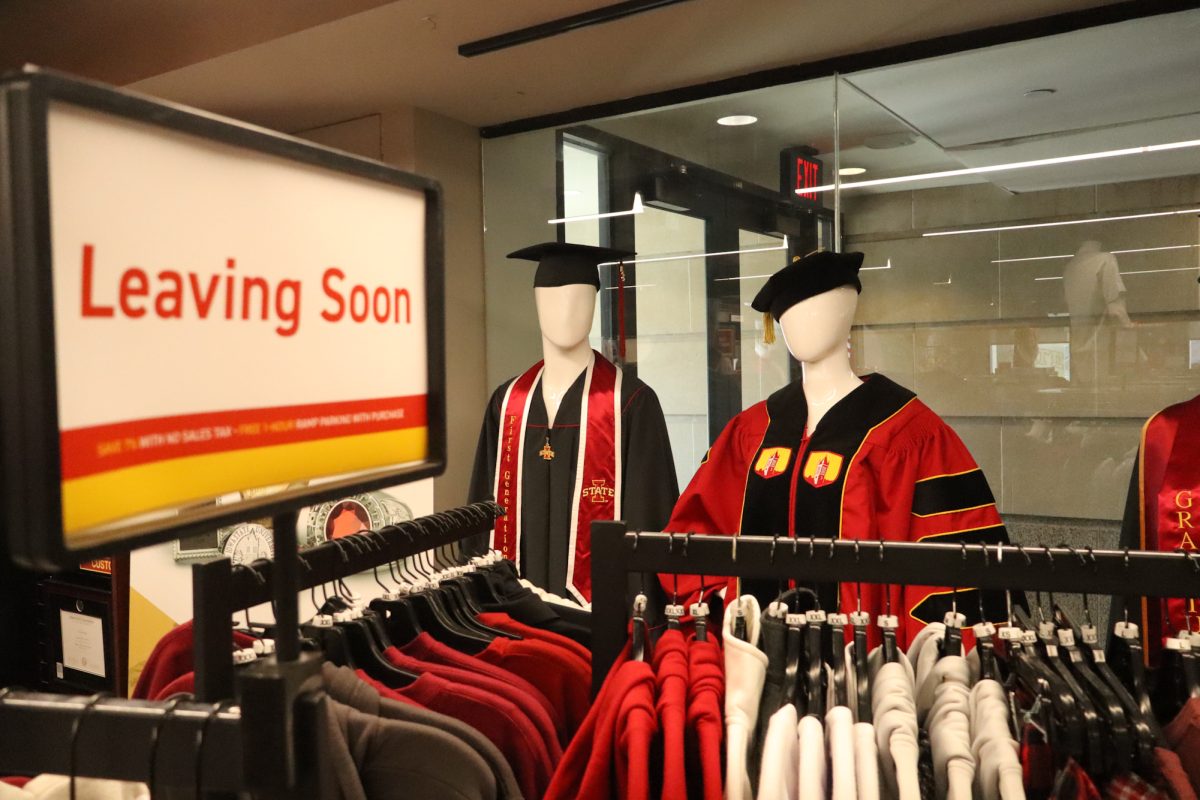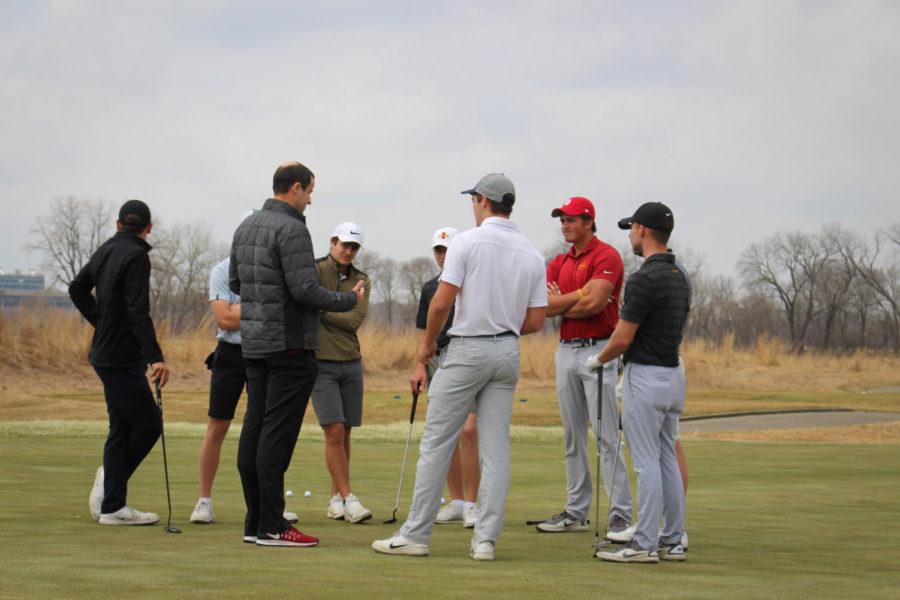Blue: The best of both worlds
February 24, 2011
When I came to Iowa State, I was going to be the best computer scientist ever.
I would be such a good programmer that I would program beer and money right into existence on my Millennium Falcon, which I would have also just programmed into existence.
As my grades in my first programming class began sliding toward the middle of the alphabet, I fought the good college fight by waving them goodbye. Where the average collegian would have drunkenly thrown a Dorito at a list of majors and chosen the one where the cheese smear was thickest, I switched to journalism because I “liked to write.”
I heart writing, sure, but in journalism and in the Greenlee School, students have to basically get married to writing; take mortgages out with writing and father several children with writing.
I switched majors and began to live my new life as a “print major,” as if I would end up in written publications. As you’re reading this article, I guess that’s more or less true.
But one day, in an intro to reporting class, I found my Rosetta Stone in the form of a TV camera. All was made clear; I would become a cameraman.
So I walked over to the Communications Building, knocked on the office door, and joined ISUtv. Josh Larson, describable only as ISUtv’s Obi-Wan Kenobi, gave me a tour of Studio B, which is where we film all of our TV shows. I think of that tour as a slimy cocoon on a tree branch: The unremarkable beginning to something beautiful.
To be fair, the writing never went away. TV writing is actually more difficult to understand than the prose you see in a newspaper, which is more or less the natural writing we’ve all worked on since high school English courses.
In TV, you’ve got to write for the teleprompter, for the ear, which results in hilarity such as Mahmoud Ahmadinejad becoming “Mah-Mood Ah-Mah-Din-Uh-Jod.”
The reporting became more complicated. Now there was a huge camera and tripod along with a mic kit I had to lug around everywhere. There were also new rules about where I could and couldn’t go. If any of my equipment didn’t work, I had no story. I couldn’t rely on just the pen and paper anymore.
Yet, when things functioned correctly, there was an immediate art form to it. Now I could frame a shot, decide how to light it and film b-roll — filler video — of stuff I thought was interesting and relevant to the story. The visual aspect threw a ring into Mount Doom and changed everything.
But the whole time there was a little Brandon crouching on my shoulder, shouting, “Why broadcast television? Isn’t TV is going the way of the floppy disk?”
The latter is untrue, at least in the Midwest, where people still prioritize local TV news, and the former is answered easily enough.
First, some background: When I was younger, my friends and I made videos for our youth group. At that age, it was more of an excuse to work fart jokes into a church setting than a serious attempt at dethroning Steven Spielberg.
While we brought joy to tens of people, our biggest fans were of course ourselves. And yet I learned then, slaving away over a hot keyboard for minutes on end, that I really enjoyed cutting and shooting video. That pleasure never really left me.
In journalism, I found that I had a sincere interest in hearing what others had to say. The sheer number of people you talk to, different people in all different walks of life guarantees every story’s a new one.
As a journalist, I’ve never talked to a person that didn’t have something to tell me, something I was happy to listen to. As Dick Doak, lecturer at the Greenlee School, told us at the opinion desk: “Everyone’s got one opinion column in them.” Truer words are rarely spoken in this field.
Broadcast journalism wed my interest of technology with my interest in humanity. It’s a marriage that will certainly last.
All that’s not to say I take the Iowa State Daily for granted. My writing skills would have withered and died had I not continued to write for the paper; TV writing is short and to the point. Prose in the opinion section has room for garden paths and run-ons, metaphor and hyperbole.
I think every second is well spent at both the Daily and ISUtv, even the unpleasant ones, which after all, only last a second.






